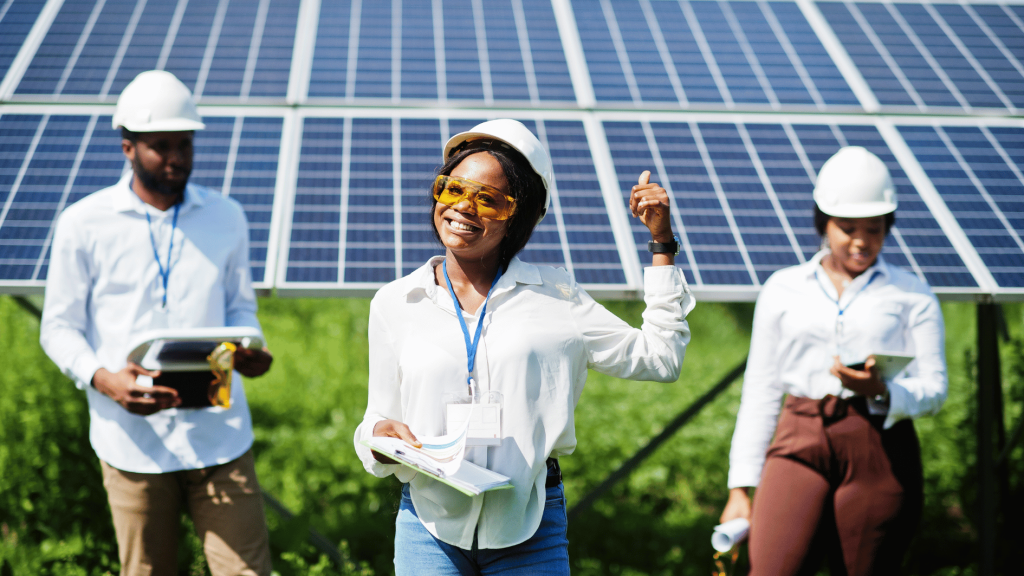Image source: Canva.com
Washington State, known for its lush forests and frequent rainfall, might not seem like an obvious candidate for solar energy. However, advances in technology and supportive policies have made solar energy a viable and attractive option in the Evergreen State. Here’s why Washington is a good place for solar energy and what you should know before investing in solar power.
Solar Potential in Washington
While Washington isn’t as sunny as states like Arizona or Nevada, it still receives enough sunlight to make solar energy effective. The state experiences long daylight hours during the summer, compensating for shorter days in winter. Modern solar panels are highly efficient, capturing energy even in cloudy or overcast conditions, which are common in Washington.

Washington’s Key Solar Incentives: A Breakdown
Supportive Policies and Incentives
Washington has established several programs and incentives to encourage solar adoption:
Washington offers a robust net metering program, allowing solar system owners to earn credits for excess energy they send to the grid. These credits can offset future utility bills.
Sales Tax Exemption
Residential solar installations are exempt from state sales tax, reducing upfront costs.
Clean Electricity Investment Credit (former ITC)
Homeowners and businesses can take advantage of a 30% federal tax credit for solar installations in 2025.
Local Utility Rebates
Some utilities in Washington provide additional rebates for solar installations, further lowering costs.
Washington Renewable Energy System Incentive Program
This state-specific program offers performance-based incentives for solar energy production.
Environmental and Economic Benefits
Investing in solar energy aligns well with Washington’s environmental priorities and offers economic advantages.
Reduced Carbon Footprint
Solar energy cuts reliance on fossil fuels, supporting Washington’s clean energy goals.
Energy Independence
By generating their own electricity, Washington residents can reduce reliance on grid power.
Long-Term Savings
Though the initial cost is high, solar systems offer significant long-term savings on bills.
Community Solar Options

For those without suitable rooftops or who prefer a shared system, Washington offers community solar programs. These programs allow residents to subscribe to a shared solar project and receive credits on their utility bills. This makes solar energy accessible to renters and homeowners with shaded properties.
Challenges and Considerations
While Washington is a great state for solar energy, there are some challenges to keep in mind:
Weather Variability
The state’s frequent cloud cover can impact solar energy production, especially during winter months. However, high-efficiency panels mitigate this issue.
Local Regulations
Some homeowners’ associations (HOAs) may have restrictions on solar installations. Recent legislation has improved the ability of homeowners to install solar systems, but it’s important to review local rules.
Upfront Costs
Despite incentives, the initial cost of solar panel installation can be a barrier for some. Financing options like loans and leasing can help.
How to Get Started with Solar in Washington
Assess Your Property
Evaluate your roof’s condition, orientation, and sunlight exposure to determine solar suitability.
Research Installers
Look for certified solar installers with experience in Washington’s permitting and regulatory processes.
Explore Financing Options
Consider loans, leases, or power purchase agreements (PPAs) to spread the cost.
Understand Incentives
Take full advantage of state and federal incentives to reduce costs.
Washington’s combination of supportive policies, environmental consciousness, and evolving solar technology makes it an excellent state for solar energy. Whether you’re a homeowner, renter, or business owner, solar power offers a path to reduce energy costs, lower your carbon footprint, and contribute to a sustainable future. Despite its cloudy reputation, the Evergreen State is proving to be a bright spot for solar energy investment.





